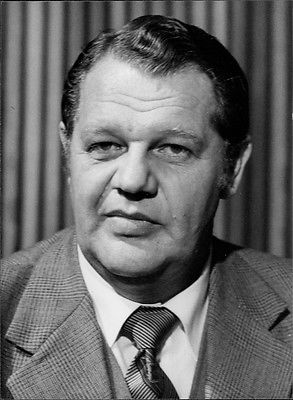This Day in History: December 7, 1978
Additional Date: December 7, 1978
The Information Scandal that broke out in 1978 is widely regarded as the single event that heralded the end of B. J. Voster's term as State President of South Africa. In an attempt to deflect attention from his role in the scandal, Voster had vowed that those implicated in the maladministration of state resources were going to be punished. The Erasmus Commission was appointed to investigate Minister Connie Mulder's Department of Information and the Bureau of State Security (BOSS), as well as South Africa's Intelligence formation under General Hendrik van den Bergh. Dr. Eschel Rhoodie, an administrator in the Department of Information committed a large portion of the department's budget towards countering the bad publicity that the country was receiving internationally. He did this with the support of , Mulder, van den Bergh and Voster. Rhoodie believed that South Africa needed to win hearts and minds in South Africa, Africa and internationally to counter the growing popularity of the ANC and other liberation organisations . Condemnation of South Africa escalated following the Soweto Revolt in 1976. The Department of Information was also particularly concerned about the continued attacks on Apartheid policies by students who had fled the country following the Soweto Revolt. These students were invited to numerous campuses in Europe and the USA to deliver lectures on the NP Government's response to the Soweto Revolt. One of these students was the president of the Soweto Students Representative Council (SSRC), Tsietsi Mashinini. Mashinini was invited to campuses across the USA in 1977 and 1978 where he addressed students on subjects relating to the brutality of the Apartheid State. In reaction to the growing criticism of South Africa internationally that gained momentum following the Soweto Revolt, Rhoodie persuaded the government to establish a newspaper that would be devoted to promoting South Africa's good image internally. And to counter the condemnation of the country untermnationally, Rhoodie planned to purchase influential newspapers in Europe and the US. These would be used to portray South Africa in a good light. The Washington Post, a British investors' journal and L'Equipe in France were earmarked for a take over. The Department of Information, using Loius Luyt as a front launched the Citizen newspaper with the aim of using it as a government mouthpiece. PACE Magazine was also launched as part of the strategy to influence perceptions about South Africa in the country. But the attempt to purchase newspapers in the US, France and Britain did not materialise. It appears the Info scandal was exposed before these deals could be concluded.
